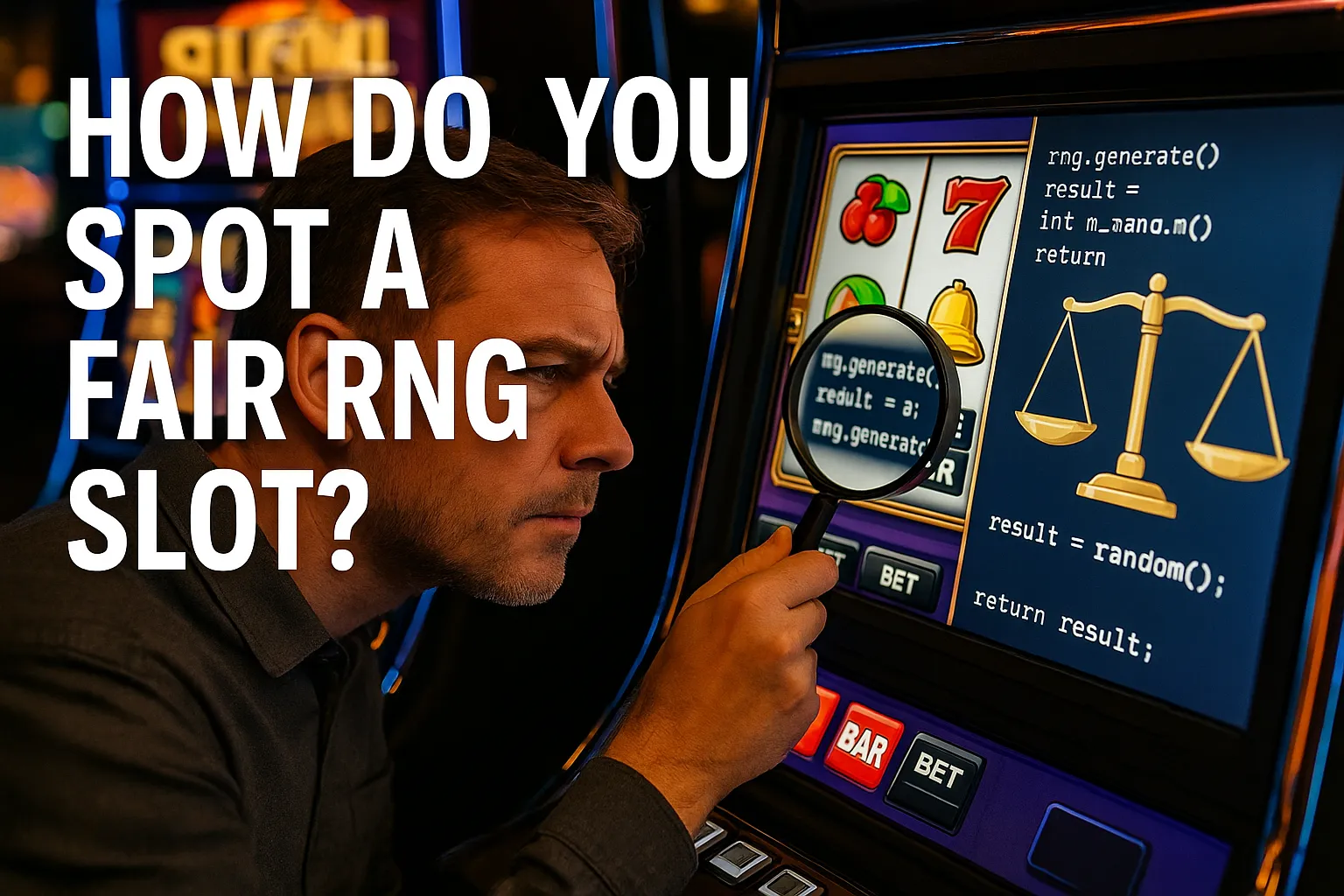The moment you step into a buzzing casino—or log onto an online casino site—you’re greeted by a kaleidoscope of lights, sounds, and endless reels spinning. While the thrill of hitting a jackpot is unmatched, every experienced player knows that beneath the glitz lies a crucial sixth sense: trust in the slot’s fairness. As someone who’s spent years testing gaming platforms and scrutinizing software—both at physical venues and on the myriad of sports betting apps evolving alongside slots—I can tell you that understanding how to spot a fair RNG slot is not only empowering but also essential for any serious player.
A Random Number Generator (RNG) is the mathematical heart of every modern slot machine. It ensures each spin is independent, unpredictable, and, when properly certified, fair. Yet not every RNG is created equal. In this article, I’ll guide you through practical steps and tell you what to look for—from certification seals to payout reports—so you can play with confidence, knowing the odds aren’t being stacked unfairly against you.
What Is an RNG Slot and Why It Matters
Every time you press “spin,” the slot machine’s RNG software generates a number that corresponds to where the reels stop. This process happens in microseconds, making it impossible to predict or manipulate based on prior results. A truly fair RNG will produce outcomes that conform to the game’s advertised Return to Player (RTP) percentage over the long run.
The Role of Third-Party Testing
Independent testing agencies—such as eCOGRA, iTech Labs, and GLI—run RNGs through rigorous statistical trials, verifying both randomness and RTP accuracy. When you see a certification seal from one of these bodies on a slot game’s info page, it’s a clear signal that the RNG has passed industry-standard fairness checks. Without these seals, you’re essentially playing blind, trusting only the operator’s word.
Signs of a Certified and Audited RNG
Spotting a fair RNG slot begins with a simple visual check. Most reputable casinos, whether online or at land-based venues, prominently display badges or seals from recognized labs. These certification logos usually link to a testing report that outlines:
-
Test methodology: Describes how the RNG was evaluated over millions of spins.
-
RTP validation: Confirms the theoretical payout matches published values.
-
Randomness analysis: Verifies there are no patterns or biases in outcome distribution.
If a casino fails to provide direct access to these reports, consider it a red flag. In my own experience, I’ve seen operators bury certification details in footer links or omit them entirely—a practice that should make any player pause.
Checking Return to Player (RTP) Disclosures
While an RNG certifies randomness, the RTP tells you the theoretical percentage of wagered money the slot returns over time. A fair slot typically advertises an RTP between 94% and 97%, depending on jurisdiction and game design.
RTP Transparency
Top-tier casinos provide clear RTP data within the game’s information panel or a dedicated “Help” section. If you’re playing in a land-based casino, ask a floor attendant; many modern machines even display RTP on their touchscreen interfaces. When RTP isn’t readily available, I’ve found reaching out to customer support can reveal whether the operator is transparent—or simply keeping players in the dark.
Live Monitoring and Payout Reports
Some online casinos go a step further by publishing monthly or quarterly payout reports. These statistics show aggregate wins and losses across all players for each game, offering a real-world glimpse into whether a slot performs as advertised. Reviewing these reports can give you confidence that the actual payout closely tracks the theoretical RTP.
Real-World Example
On one occasion, I was skeptical about a popular progressive slot’s claimed 96% RTP. After locating the casino’s monthly payout report, I discovered the actual payout hovered around 95.8%—well within acceptable variance. This kind of real-data check reassured me that the slot wasn’t deceptively programmed to pay out less.
Payline and Volatility Considerations
Beyond RTP and certification, consider a slot’s volatility—a measure of how frequently it pays smaller wins versus rare, large jackpots. High-volatility games might deter players who face extended losing streaks, but the returns on a win can be spectacular. Conversely, low-volatility slots reward wins more often but with smaller prizes.
Fair Volatility Indicators
A legitimate RNG slot will align its volatility description (often advertised as Low, Medium, or High) with actual play experience. If a “low volatility” slot leaves you waiting hundreds of spins for even a minimal win, it’s possible the game’s configuration or RNG is off. Online, community forums and player reviews can be invaluable for gauging whether a slot’s published volatility matches reality.
Recognizing Licensed and Regulated Operators
While examining individual slot titles is crucial, the operator’s credentials also matter. Always verify the casino’s license—whether from the UK Gambling Commission, Malta Gaming Authority, or another respected body. Licensed operators are mandated to use certified RNGs and publish RTP data. If you’re exploring emerging platforms or offshore sites, tread cautiously, as regulatory oversight may be limited.
Practical Tips for Players
Spotting a fair RNG slot doesn’t require a degree in computer science. Here’s how you can make smart choices:
-
Look for recognized certification seals and follow links to test reports.
-
Verify RTP values within the game’s information panel or via support channels.
-
Check for published payout reports to confirm real-world performance.
-
Assess volatility through small-stake test sessions or community feedback.
-
Prioritize casinos with strong regulatory licenses and clear transparency policies.
In my years of both playing and advising, these steps have consistently helped me separate trustworthy games from questionable ones.
Common Misconceptions
Many players believe that using betting patterns or timing spins can influence outcomes. This is a myth—once an RNG begins its cycle for a spin, it doesn’t reference past or future spins. Likewise, searching for “hot” or “cold” machines is ineffective; true RNGs ensure each spin is independent.
Conclusion
Trust is the currency of the casino world. By learning to spot a fair RNG slot—through certification seals, RTP disclosures, payout reports, and operator licensing—you empower yourself to play confidently and make informed decisions. Whether you’re spinning reels on a classic fruit slot or exploring new features in live games, these checks ensure the dice roll, the cards shuffle, and the reels spin in genuine randomness. Armed with these insights, you can focus on the fun of the game, knowing that fairness isn’t just promised—it’s proven.










